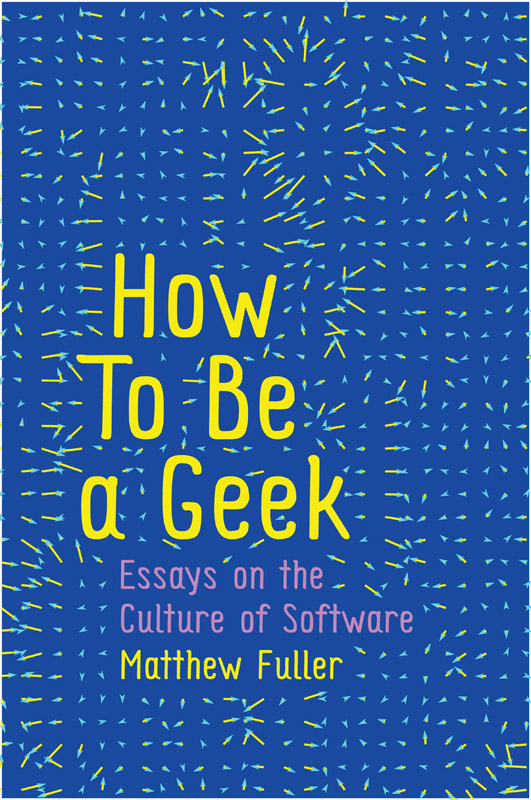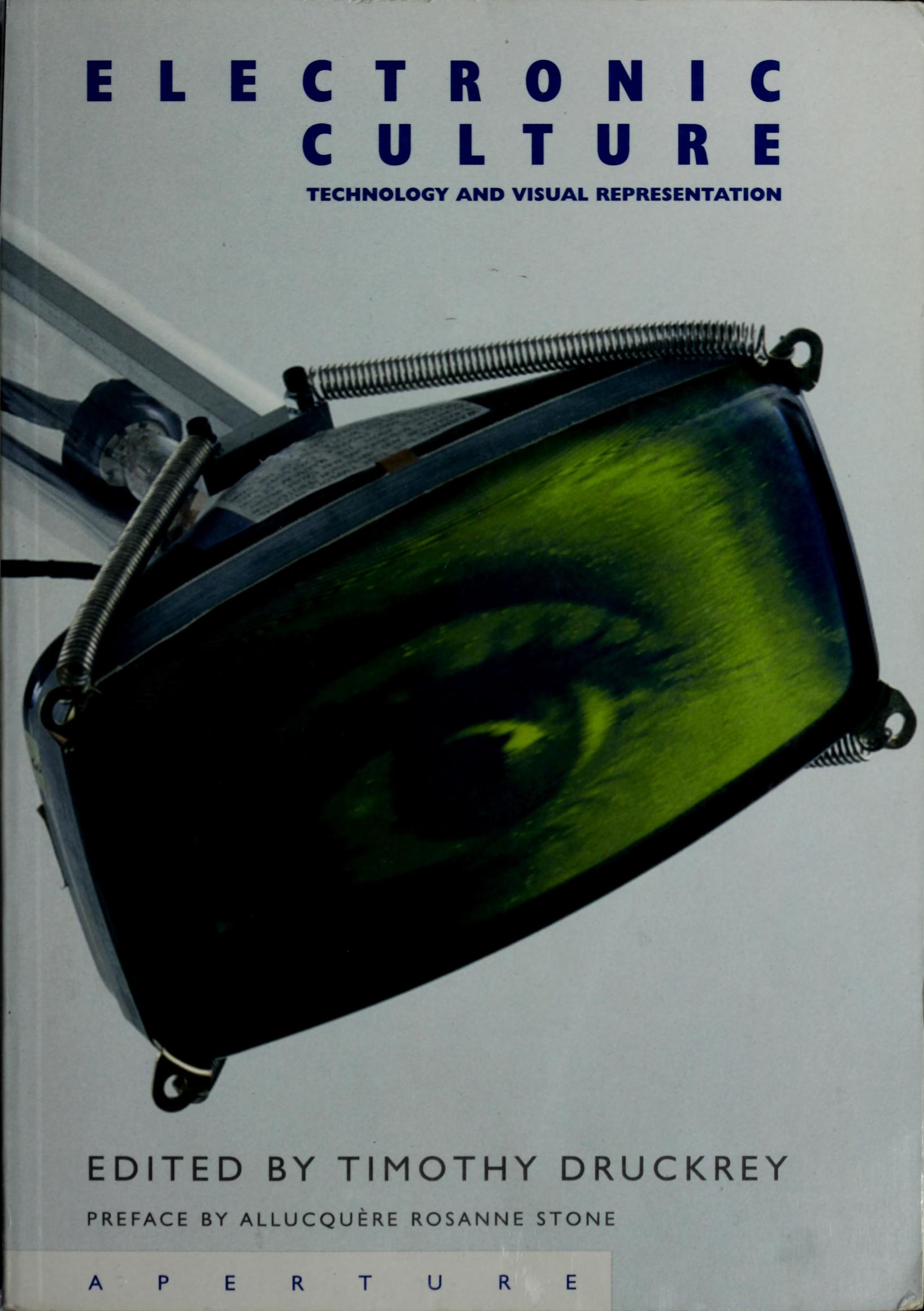Matthew Fuller: How To Be a Geek: Essays on the Culture of Software (2017)
Filed under book | Tags: · aesthetics, algorithm, computation, computing, database, information, language, media, media theory, networks, programming, software, software studies, theory

“Computer software and its structures, devices and processes are woven into our everyday life. Their significance is not just technical: the algorithms, programming languages, abstractions and metadata that millions of people rely on every day have far-reaching implications for the way we understand the underlying dynamics of contemporary societies.
In this innovative new book, software studies theorist Matthew Fuller examines how the introduction and expansion of computational systems into areas ranging from urban planning and state surveillance to games and voting systems are transforming our understanding of politics, culture and aesthetics in the twenty-first century. Combining historical insight and a deep understanding of the technology powering modern software systems with a powerful critical perspective, this book opens up new ways of understanding the fundamental infrastructures of contemporary life, economies, entertainment and warfare.
In so doing Fuller shows that everyone must learn ‘how to be a geek’, as the seemingly opaque processes and structures of modern computer and software technology have a significance that no-one can afford to ignore. This powerful and engaging book will be of interest to everyone interested in a critical understanding of the political and cultural ramifications of digital media and computing in the modern world.”
Publisher Polity, 2017
ISBN 9781509517152, 1509517154
x+233 pages
Timothy Druckrey (ed.): Electronic Culture: Technology and Visual Representation (1996)
Filed under book | Tags: · cybernetics, cyberspace, interface, machine, media, media theory, networks, photography, representation, software, technology, theory, virtual reality

“A rich compilation of essays by some of today’s leading theorists and media critics, this book gathers a series of explorations into diverse forms of visualizations in a cultural environment wired into the global network. With its emphasis on the impact of the digital revolution in the late 20th century and the historical context in which it arose, Electronic Culture could not be more timely or relevant.”
Texts by Vannevar Bush, Martin Heidegger, Hans Magnus Enzensberger, Jean-Louis Comolli, Kathy Rae Huffman, Lev Manovich, Vilém Flusser, N. Katherine Hayles, Siegfried Zielinski, Slavoj Žižek, Friedrich Kittler, Sherry Turkle, Pierre Levy, Hakim Bey, Adilkno/Geert Lovink, Critical Art Ensemble, a.o.
Preface by Allucquère Rosanne Stone
Illustrations by Critical Art Ensemble
Publisher Aperture, New York, 1996
ISBN 0893816787, 9780893816780
447 pages
Review: Andreas Broeckmann (Leonardo, 2000).
PDF (155 MB)
Comment (0)Alexander R. Galloway, Eugene Thacker, McKenzie Wark: Excommunication: Three Inquiries in Media and Mediation (2013)
Filed under book | Tags: · communication, horror, media, media theory, mediation, mysticism, mythology, networks, queer theory, theory

“Always connect—that is the imperative of today’s media. But what about those moments when media cease to function properly, when messages go beyond the sender and receiver to become excluded from the world of communication itself—those messages that state: “There will be no more messages”? In this book, Alexander R. Galloway, Eugene Thacker, and McKenzie Wark argue that these moments reveal the ways the impossibility of communication is integral to communication itself—instances they call excommunication.
In three linked essays, Excommunication pursues this elusive topic by looking at mediation in the face of banishment, exclusion, and heresy, and by contemplating the possibilities of communication with the great beyond. First, Galloway proposes an original theory of mediation based on classical literature and philosophy, using Hermes, Iris, and the Furies to map out three of the most prevalent modes of mediation today—mediation as exchange, as illumination, and as network. Then, Thacker goes beyond Galloway’s classification scheme by examining the concept of excommunication through the secret link between the modern horror genre and medieval mysticism. Charting a trajectory of examples from H. P. Lovecraft to Meister Eckhart, Thacker explores those instances when one communicates or connects with the inaccessible, dubbing such modes of mediation “haunted” or “weird” to underscore their inaccessibility. Finally, Wark evokes the poetics of the infuriated swarm as a queer politics of heresy that deviates from both media theory and the traditional left. He posits a critical theory that celebrates heresy and that is distinct from those that now venerate Saint Paul.
Reexamining commonplace definitions of media, mediation, and communication, Excommunication offers a glimpse into the realm of the nonhuman to find a theory of mediation adequate to our present condition.”
Publisher University of Chicago Press, 2013
TRIOS series
ISBN 0226925226, 9780226925226
210 pages
Reviews: Daniel Colucciello Barber (Parrhesia, 2014), Jay Murphy (Afterimage, 2014), Geert Lovink (e-flux, 2014, Wark’s response), Aleksandra Kaminska (Reviews in Cultural Theory, 2015), Marco Deseriis (Culture Machine, 2015).
PDF (updated on 2019-11-20)
Comment (0)
